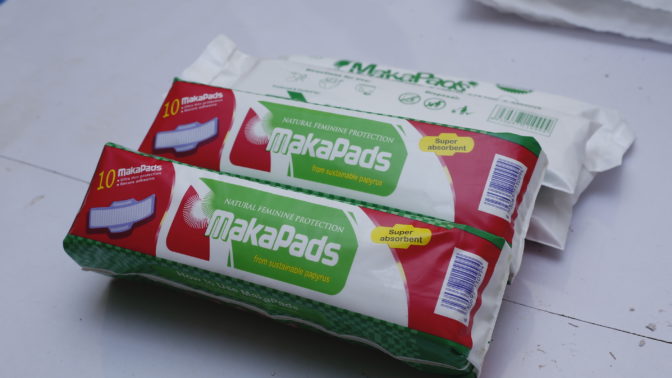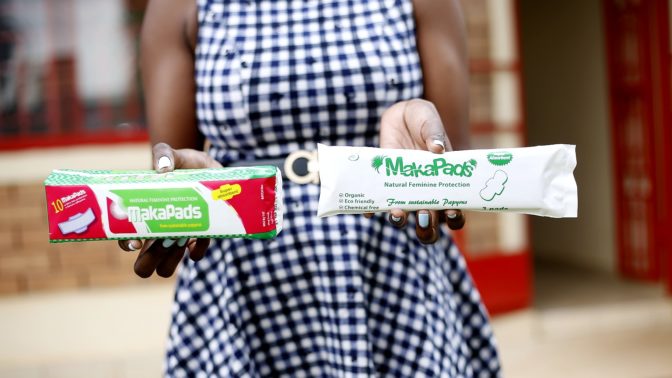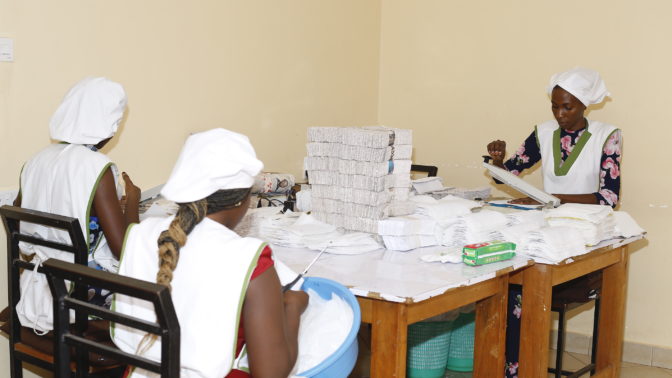In conversation: Not having access to sanitary menstruation products can have a devastating impact on the lives of girls and young women in Uganda
Dirty. Impure. Contaminated. That is how girls and young women can be thought of in many underserved Ugandan communities when the topic of menstruation is mentioned. For girls and young women who don’t have access to affordable menstruation products, they often face significant social stigma, missed school and work, and are more susceptible to health complications.
To underscore the importance of awareness days like World Menstruation Day, we spoke with Shirley Kandabu, CEO of IMPACC MakaPads – an epNetwork member, about access to affordable menstruation products and education about menstruation as important systemic elements continuing to need concerted efforts and resources in Uganda and beyond.

Shirley, for those who don’t know, what makes MakaPads unique and how (and where) are they made?
Everyday is about working to make MakaPads accessible and affordable to young girls and women in low income communities and to ensure young girls and women are able to participate in all social and economic activities without fear or shame.
The MAKAPAD is an affordable, locally manufactured disposable sanitary pad made from locally sourced materials that include papyrus and recycled paper.
The MakaPad is 90% biodegradable which tackles the waste advantage that the other options offer. It has high absorption and retention capacity and offers up to 8 hours of worry free protection. MakaPads are disposable and, therefore, there is no need to worry about sterilization and sanitation.
We work to embrace environmental sustainability throughout all our production processes and work to achieve sustainably conscious efficiency in production of quality menstrual hygiene products.
We create decent jobs and opportunities within our processes to support dignified growth of all in our value chain and maintain our ethos by being an honest enterprise known for quality and integrity in all we do as a business and individuals within the business.

What specific challenges can girls and young women face when they don’t have access to sanitary pads?
For girls who don’t have access to affordable menstruation products, they often aren’t able to attend school, sometimes for up to five days, leading to high dropout rates. In rural settings, girls often aren’t able to access facilities that offer tools and products that can support them with menstruation. For young women, they have to stay home and often aren’t able to work. And for both girls and young women, they face stigma and limited social activities if sanitary menstruation products are unavailable. In some cases, in rural areas with communal bathing places, girls and young women have to find somewhere else to bathe as they may fear being ridiculed.
IMPACC MakaPads not only produces affordable and disposable pads, the social enterprise engages in educational training in communities and schools. We have found that cultural knowledge on the topic of menstruation is limited and often referred to as taboo. Practically speaking, reusable pads made from cloth don’t work well for girls and young women living in areas without access to water and sanitizing products to properly clean these pads, which can lead to disease; furthermore, disposable pads are better for the environment.

Shirley, can you explain the kind of impact IMPACC MakaPads has had on local communities in Uganda? What does impact look like there?
In addition to providing affordable, locally-made disposable sanitary pads, we provide employment opportunities to Ugandans. From harvesting papyrus to final packaging, the production of MakaPads is done by hand, with women holding 80% of the manufacturing and production positions. The ratio is even higher when looking at management positions, with 90% being held by women.
Beyond job opportunities, the knowledge that IMPACC is able to provide local communities is essential in shifting current perceptions. Our educational efforts allow societies – including boys and men – to understand that menstruation is a normal reproductive process. We also teach girls and young women how to best manage menstruation.
Why is it important to acknowledge and celebrate World Menstruation Day?
Menstruation is often dismissed. When you think about the school absence rate of Ugandan girls aged 12-18 tripling between 2019 and 2022, from 7% to 28%, action needs to be taken. Moreover, when women need to engage in prostitution to earn money to buy sanitary pads, attention needs to be drawn. Any opportunity to raise awareness about the issues girls and young women face when it comes to menstruation is important.
To learn more about the impactful work Shirley and her team at IMPACC MakaPads are dedicating themselves to each and every day, visit their organization’s profile on our epNetwork database.